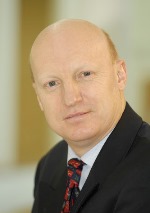In search of Good Dividends
Advances in Project Management Series
SERIES ARTICLE
By Steve Kempster, Ken Parry and Thomas Maak
UK and Australia
Business has the very real potential to be the greatest mechanism on the planet to enhance humanity, if it can do this profitably and generate divi- dends for all its stakeholders.
All businesses seek to generate good dividends – how could it be otherwise. But let’s go further, all organisations should generate good dividends – private, public, and voluntary, NGO’s and even local and national governments. It is quite likely that the second sentence will have created a disquiet, alarm and even doubt as to whether you should read further. We hope you do.
A dividend is more than simply the term for a payment. It is an ownership in something to which a return today or in the future is anticipated. That return is typically divided up between the owners. It is of course a term we closely associate with business where shares are bought and sold on the basis of success and anticipated future performance. Yet it does apply to all organisations and institutions who have owners who can anticipate receiving dividends – hopefully good ones. Employees have a stake in the success of their organisations. We have a stake in our governments. Further, we all have a stake in the well-being of our communities and indeed the planet. So, it should be considered a much more encompassing term. And that’s how we frame it within our work. Good dividends matter to all of us.
Good dividends are drawn from the use of capital. Capital (or stock – from the old English term for a tree stump) is something that can be increased by human endeavour. It is of course financial, and good dividends usually translate to an increase in financial capital. But the conflation is unhelpful. Financial is but one of six capitals: in addition to financial there is human capital, social capital (networks, relationships, communities), reputational capital (brand value), operational (transforming capability) capital, and natural capital (planetary). All of the six capitals relate to all institutions – including but not limited to businesses, charities, NGO’s, local and central governments.
And here’s the thing…
If you maximise the capitals you maximise the good dividends – including financial. All can be systemically interconnected and we provide an example further on in this article to amplify this point. But it is rare for institutions – notably for-profit businesses – to overtly pursue the maximisation of all capitals. The preoccupation is with financial capital and financial dividends, and ironically this preoccupation limits the potential financial dividend over the medium- and long-term. Thus, the premise of our work is simple – it is about the role of leadership (arguably the most dominant social influence mechanism on the planet!) with a focus on purpose to maximise the six capitals and maximise the six Good Dividends.
This line of work is ambitious. We have sought to bring together academics and senior managers to address what we think is a key fundamental question that the leadership field (and perhaps leadership practitioners) have not addressed: leadership for what? The answer we offer is leadership of purpose through the notion of achieving good dividends. We will explore this answer in depth in this article. The ambitious nature of the work is related to the interdisciplinary approach. Too often, arguably invariably, discussions on leadership are delineated to an examination of the leader, the person, the role and to a lesser extent the leadership relationship. Here we examine the purposes, responsibilities and orientations of the activities of leadership with regard to the fiduciary duty and the generation of value. Our ambitions seek to reframe discourses on the role of business. We outline in our work a set of four interdisciplinary cornerstones that have not been drawn together to date, yet we contend that it is prescient that we do. These are: moral capitalism, virtue ethics, responsible leadership and the grand societal challenges to humanity (alternatively described as the sustainable development goals [SDG’s]). The 4 cornerstones form the theoretical foundation that underpin the arguments within our approach, notably the necessity for leadership to influence organisational activity to generate good dividends, for shareholders, for communities and indeed for humanity.
More…
To read entire article, click here
Editor’s note: The Advances in Project Management series includes articles by authors of program and project management books published by Routledge worldwide. Information about Routledge project management books can be found here.
How to cite this paper: Kempster, S.; Parry, K.; Maak, T. (2020). Leadership of purpose: In search of Good Dividends, PM World Journal, Vol. IX, Issue VI, June. Available online at https://pmworldlibrary.net/wp-content/uploads/2020/05/pmwj94-Jun2020-Kempster-Parry-Maak-leadership-of-purpose.pdf
About the Authors

Steve Kempster
Lancaster, UK
![]()
Steve Kempster is Professor of Leadership Learning and Development at Lancaster University Management School, UK. He has authored the books LEADing Small Business (Edward Elgar) and How Managers Have Learnt to Lead (Palgrave Macmillan), and has co-edited (with Brigid Carrol) Responsible Leadership: Realism and Romanticism (Routledge), Field Guide to Leadership Development (Edward Elgar) and he has published widely in The Leadership Quarterly, Management Learning, Leadership, and other top-ranking journals. Steve’s first career was as a chartered surveyor, during which time he ran his own practice. In his second career, his research and engagement interests span leadership learning, responsible leadership, and through addressing the question ‘leadership for what?’ examines the contexts, purposes, actions and outcomes of those who lead.

Thomas Maak
Melbourne, Australia
![]()
Thomas Maak is Professor of Leadership and Director of the Centre for Workplace Leadership at the University of Melbourne. A graduate from the University of St Gallen, he held appointments at St Gallen, INSEAD, ESADE Business School and was formerly Head, School of Management and founding Director of the Centre for Business Ethics and Responsible Leadership at the University of South Australia. Thomas is a leading scholar in the field of responsible leadership and uses a multi-level lens to research leadership at the individual, group and organisational level, linking ethical theory, political philosophy, relational thinking and stakeholder theory. Thomas has extensive experience in leadership development and has worked for several years with PricewaterhouseCoopers on their award-winning senior executive programme ‘Ulysses’. Beyond leadership research his interests include ethical decision-making, political CSR and organisational neuroscience. Through his work with leading social entrepreneurs in South Asia and South America he is also interested in social innovation and the advancement of human dignity in a connected world.

Ken Parry
Melbourne, Australia
![]()
Ken Parry was Professor of Leadership Studies at Deakin Business School, in Melbourne, Australia. His research interests focused on all methodologies that are associated with the study of leadership. He brought auto-ethnography to management/business studies early in the century. He is co-author, with Brad Jackson, of the Sage Short, Interesting and Cheap Book about studying leadership—the No.1 selling leadership text. Most of his publications focused on grounded theory and other qualitative methods. He was widely asked to be a keynote speaker in industry and academic conferences.









